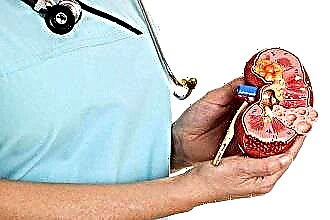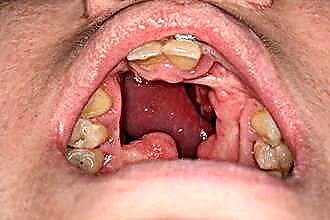Treatment principles
 Traditional medicine is trusted by many people - recipes tested for decades cannot fail. However, there are many nuances due to which products based on herbal ingredients acquire the properties of a medicine. This is the correct cultivation, the collection of certain parts of the plant at a specific time, and the correct storage. In addition, even self-prepared medicines are by no means harmless - the likelihood of individual intolerance, an allergic reaction cannot be ruled out.
Traditional medicine is trusted by many people - recipes tested for decades cannot fail. However, there are many nuances due to which products based on herbal ingredients acquire the properties of a medicine. This is the correct cultivation, the collection of certain parts of the plant at a specific time, and the correct storage. In addition, even self-prepared medicines are by no means harmless - the likelihood of individual intolerance, an allergic reaction cannot be ruled out.
There are many useful folk remedies. But while taking home medications, one should not reject non-medicinal methods, which create the necessary "background" for the beginning of recovery. What should they be?
- Improvement of microclimate parameters.
A person is constantly in contact with the external environment; air humidity, speed of its movement, saturation with dust, heating level - those indicators that directly or indirectly affect the state of the respiratory tract. It is recommended to keep the air temperature at the level of 19-22 ° C, and the humidity - 50-70%, and regularly carry out wet cleaning.
- Elimination of primary causes.
Vasomotor rhinitis is often combined with diseases of the digestive, endocrine, and nervous systems. If the patient knows about the presence of such pathologies, one cannot ignore the symptoms and direct all efforts only to stop the manifestations of the common cold. Even strong emotional stress can cause nasal congestion, so you need to think about whether vasomotor rhinitis could have primary causes - and how you can eliminate them.
- Search for provoking factors.
A runny nose with vasomotor rhinitis is a reaction to an irritant. If the patient knows what irritating factors (strong odors, occupational hazards, etc.) cause him, he can try to avoid them.
- Individual selection of folk remedies.
There are no harmless medicines, and folk recipes also have contraindications and side effects. Many medicines offered by traditional medicine should not be used by pregnant women and children, the elderly, and people with allergies. Therefore, it is worth evaluating not only the presence of indications, but also the likely consequences of the admission.
Folk remedies for the treatment of vasomotor rhinitis should not irritate the nasal mucosa.
It should be understood that vasomotor rhinitis is due to increased
sensitivity to stimuli of various nature. It cannot be completely cured, therefore, the goals of any therapeutic measure are reduced to weakening the reaction, characterized by the occurrence of a cold.
In the fight against unpleasant symptoms, it is worth avoiding actions that can aggravate the condition - aggressive means and painful methods cannot be useful, even if they are recommended by traditional medicine.
Folk remedies recipes
To help a patient who has vasomotor rhinitis, treatment with folk remedies is carried out in courses of varying duration. In this case, it is not necessary to give up pharmacological drugs. It is worth consulting with your doctor in advance which folk recipes are compatible with the already prescribed treatment.
It should be said right away that traditional medicine does not offer remedies intended solely for the treatment of vasomotor rhinitis. Many of the recipes below are used to relieve symptoms of various types of rhinitis, both infectious and non-infectious. Since the mechanism of development of vasomotor rhinitis is based on vascular disorders, and not an acute inflammatory process, each remedy must be used with caution - excessive irritation will only aggravate the congestion.
How is vasomotor rhinitis treated?
Folk remedies can be divided into two main groups: for internal and external use. Both treatment options can be combined if there are no adverse reactions.
For oral administration:
- Take dry equal amounts of rosehip and dandelion root, chop and mix. To prepare the medicine, you need a container that keeps heat (a thermos is best). A teaspoon of dry mixture requires a glass of hot water. It is best to prepare the product in the evening, so that by the morning it is infused and available for use throughout the day. Frequency rate of admission - 3 times a day for a third of a glass of pre-strained infusion for 2 months.
- Take a ripe lemon and a tablespoon of honey. From a cut lemon wedge, squeeze a little juice into a teaspoon of honey, take 3 times a day for 4 weeks. Do not drink or eat anything for half an hour after taking.
- Wash, peel fresh beets, extract the juice. The foam formed on the surface can be partially removed. Drink the juice along with a teaspoon of honey. Take one glass a day for several weeks.
- Drink raw carrot juice and apple juice separately. The juice should be freshly squeezed, do not add sugar to it.
When treating vasomotor rhinitis at home, it is better to use small amounts of funds at first - this will help to understand if they will cause adverse reactions.
Outdoor use
The main methods of external application:
- lubrication;
- introduction in the form of drops;
- inhalation.
One of the most common ingredients for treating the common cold in folk medicine is onion. It can be crushed on a grater, squeezed out juice for instillation into the nose, and compresses. One of these recipes will be given below. However, we must not forget about the features that characterize vasomotor rhinitis - treatment at home should be safe. Fresh onions can irritate and burn not only the nasal mucosa, but also the eyes, therefore, its use requires extreme caution.
- Grate the peeled onion or chop finely, without bringing to the consistency of gruel. Spread the onion evenly on the surface of a shallow plate, bring it closer to your nose (at a distance of 30 cm), close your eyes, breathe over it for 2 minutes. Repeat twice a day. Only a fresh onion is required each time. If there is an uncontrollable sneezing, painful burning sensation, swelling worsens, stop using onions in treatment.
- Grate the carrots. Distribute it on a plate, bring it to your nose (you can with your eyes open) and breathe for about 20 minutes. Repeat 3 times a day, using only fresh, peeled carrots each time.
- Squeeze out some carrot juice, lubricate the nasal mucosa with a cotton swab. Repeat in the morning and in the evening, the nose should be cleared of mucus before this.
- Make beetroot juice drips. To do this, peel the beets, grate a small piece, squeeze out the juice and strain through cheesecloth. Dip cotton swabs into it and lubricate the nasal mucosa. Nasal instillation is also practiced, but the first method is safer.
- Pour 2 tablespoons of dried chamomile buds with hot water.Use this infusion for inhalation. It is better if the nose breathes freely and is free of mucus. Monitor your reaction, if you experience swelling, itching and other symptoms, stop inhalation, do not use this method again.

Treatment of vasomotor rhinitis with folk remedies does not allow for quick relief of the condition, requires long-term use for the appearance of an effect.
The result is not always immediately visible. When the nose is completely blocked, nasal breathing is blocked, you can use antihistamines, vasoconstrictors, which are prescribed by your doctor. If vasomotor rhinitis is understood not as neurovegetative, but allergic, antihistamines are drugs that cannot be avoided even in the treatment of folk methods. At the same time, you should not abuse decongestants - vasoconstrictor nasal drops, they are addictive, as well as rhinitis medication.
In conclusion, it should be said that vasomotor rhinitis is a disease with a complex development mechanism that cannot always be cured by conservative methods. It will not work to eliminate rhinitis with alternative medicines if secondary hypertrophy of the turbinates has developed or there are other complications that require surgery. Therefore, it is worthwhile to take a balanced approach to the use of folk recipes, before starting treatment, consult a doctor.

 sensitivity to stimuli of various nature. It cannot be completely cured, therefore, the goals of any therapeutic measure are reduced to weakening the reaction, characterized by the occurrence of a cold.
sensitivity to stimuli of various nature. It cannot be completely cured, therefore, the goals of any therapeutic measure are reduced to weakening the reaction, characterized by the occurrence of a cold.

